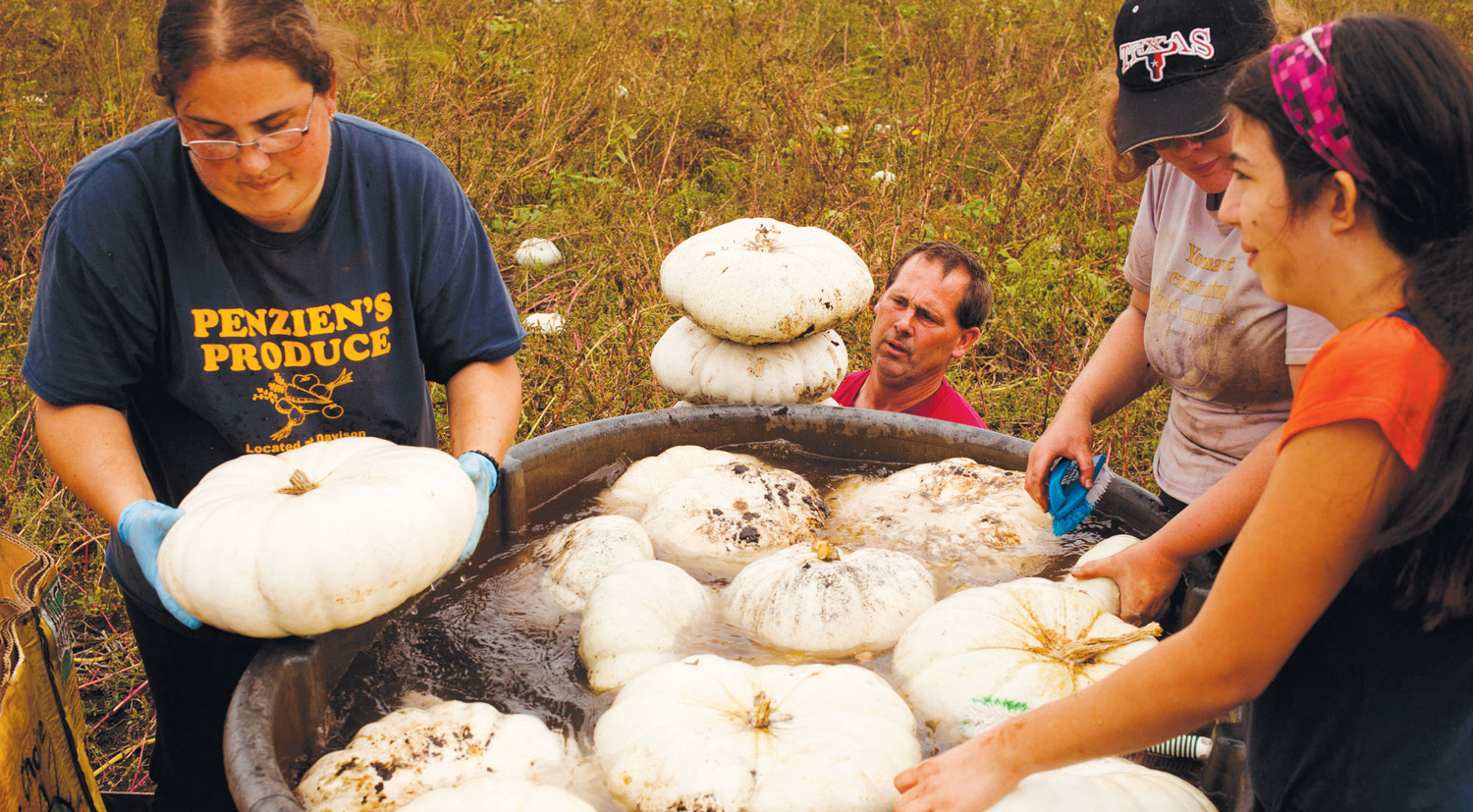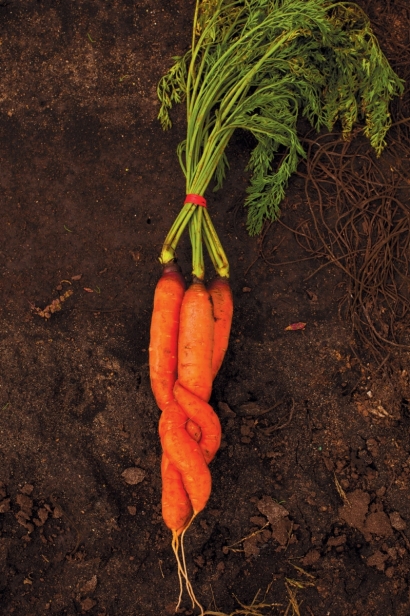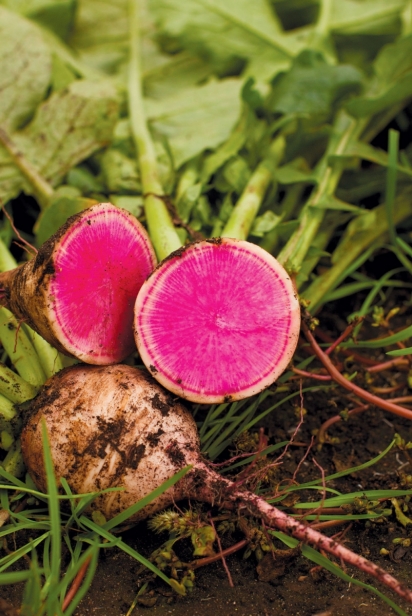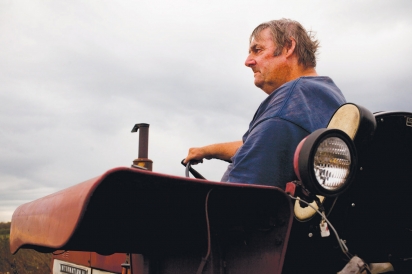From Penzien's Family to Yours
On any winter Saturday, Bruce and Brian Penzien know just where they’ll be. The father and son, who farm together outside Imlay City, head out to two farmers’ markets—Bruce to the Davison Farmers’ Market, Brian to the Oakland County Farmers Market in Waterford.
Bruce is the third generation on the family farm, which was founded in 1887; Brian is the fourth. Together they raise 65 acres of vegetables, mainly root crops and squash. “We used to milk cows at one time, my dad did,” Bruce says. Brian lives about four miles away.
Father and son attend their farmers’ markets in winter, offering homegrown carrots in a rainbow of colors, beets, cabbage, parsnips, fall squash, onions, turnips, leeks, garlic, shallots, rutabagas, pumpkins and potatoes. Enormous radishes come in two varieties: watermelon (a red center and light green exterior) and spicy black. They also sell a bag of mixed vegetables, convenient for adding to a roast or soup.
They are able to sell their harvest through the winter—until it’s gone—because they store it in an insulated pole barn. “We keep it at 40°,” Bruce says. “We put it in dirty and, as we need it for market, we wash it.” That’s in order to store it for as long as possible. This is definitely a family affair. Brian’s daughter Rachel helps on the farm; Bruce’s daughter Danielle helps at market and on the farm. A couple of cousins are also in the farming business nearby. “We have a few kids that work seasonal through the summer, too,” Bruce says.
Their biggest crop is potatoes, and they offer large and small varieties. “Carrots are another one of our main items,” Bruce says. “The carrots I raise are different than the ones you can buy in the grocery store. They are called a coreless carrot. If a carrot of mine rolled off the table, it would break in half. And we harvest the majority of them by hand because they would break. And we try to harvest them as late as we can. The longer you wait, the better they are.”
The onion they plant is called a candy onion. “It’s real mild. It’s a lot like a Vidalia,” Bruce says. Beets are available most of the winter and store well once purchased. Squash is a bit trickier for a buyer to store long term. “You want about 50° and dry,” Bruce says. He advises against washing them until ready to cook. He also suggests freezing them if you buy a quantity. “Squash freezes real well. You want to bake them and freeze them.”
The Penziens also raise romaine lettuce and celery in the summer. Cousin Ken starts some vegetables in his greenhouse that need an earlier start, such as leeks, celery and garlic, which are then transplanted to Bruce’s farm.
The Davison market is open Tuesday, Thursday and Saturday year-round. As the Michigan growing season winds down, Bruce can supplement his offerings with produce he doesn’t grow, such as tomatoes. “I do buy and sell other stuff to fill in,” Bruce says. The Waterford market, which is only open on Saturday from January through April, has stricter rules on what may be sold. “They want homegrown and fresh,” Brian says. “They don’t want it to look like a grocery store.”
For 50 years, Bruce had a stall at the old Flint Farmers’ Market. When it closed in preparation for the transition to a new location, Bruce moved to the Davison market, which opened five years ago in a new building just off I-69. But, at the age of 71, he’s feeling the competition of the big box stores in the area. “I’ve been just hanging on,” he says. “I like what I do; I’ve done it all my life. I have loyal customers; they followed me here. That’s the only thing that’s keeping me going.”
As the only son, Brian, who’s 50, says he started feeling the pressure to take up the farm at a young age. “I struggled with that a long time,” he says. “I love doing the work now.” His own daughter is interested in following in his footsteps, but both he and his dad worry there isn’t enough trade to keep it going. As it is, Brian works another job during the winter months and handles the market for a neighbor who grows flowers in spring, before his own crops are ready. “I’m, like, six days a week, year-round,” he says.
“Brian wants to continue farming, but it seems every year it gets harder,” Bruce says. Weather is a huge variable. In 2018, a lot of carrots were lost due to the hot, dry weather and some of the squash suffered sunburn.
“That’s the deal with farming: It’s one thing after another. What you learn this year may not apply next year.” And getting seasonal help has become difficult. That’s why they don’t grow tomatoes, Brian says.
While they generally stick to growing what they’re known for, “We try something new every couple of years,” Brian says. “That’s how we ended up growing shallots.”
But the work is hard and taking its toll. “I figure I hand-lifted 50 to 100 tons of squash and pumpkin this fall,” Brian says, speaking in early November. “Exhausted was two-and-a-half months ago.”








